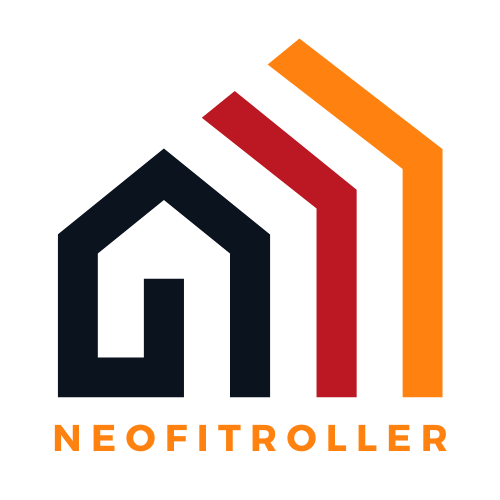Table of Contents
ToggleBeing a landlord can feel like juggling flaming torches while riding a unicycle. It’s a balancing act filled with challenges, from finding reliable tenants to dealing with unexpected repairs. But fear not! With the right tips under their belt, landlords can transform their rental experience from chaotic to smooth sailing.
Imagine turning those late-night phone calls about leaky faucets into conversations about how great their new home is. By adopting some savvy strategies, landlords can not only keep their properties in tip-top shape but also create a harmonious relationship with their tenants. Let’s dive into the essential tips that’ll help landlords keep their cool while maximizing their rental success.
Essential Landlord Tips for Success
Understanding tenant screening is crucial. Prioritize thorough background checks to ensure reliable tenants. Verify income, conduct credit checks, and contact previous landlords to gather essential insights.
Effective communication with tenants enhances relationships. Quickly respond to queries and provide clear guidelines on property rules. Regular updates about maintenance or changes in policies foster trust and transparency.
Establishing a solid lease agreement protects both parties. Draft a comprehensive lease that outlines responsibilities, payment terms, and maintenance duties. Clarity in documentation minimizes disputes and sets expectations.
Maintenance management cannot be overlooked. Schedule regular inspections to address potential issues proactively. Creating a system for tenants to report repairs ensures quick resolution and minimizes property damage.
Utilizing property management software streamlines operations. Choose tools that track rent payments, manage lease agreements, and facilitate communication. Automation reduces administrative burdens and enhances efficiency.
Staying informed about local laws is essential. Monitor regulations regarding tenant rights, evictions, and property regulations. Compliance prevents legal troubles and reinforces credibility as a landlord.
Networking with other landlords provides valuable resources. Join local landlord associations or online forums to share tips and experiences. Learning from others’ successes and failures can significantly enhance property management skills.
These tips equip landlords for success. By focusing on tenant relations, legal compliance, and efficient management, they can navigate challenges effectively, optimizing their rental experience.
Understanding Your Responsibilities

Landlords hold specific responsibilities that ensure a successful rental experience. Knowing and fulfilling these duties is vital for maintaining properties and fostering positive tenant relationships.
Legal Obligations
Landlords must adhere to various local and state laws regarding tenant rights. Familiarity with regulations helps prevent legal disputes and maintains credibility. They should keep security deposits in separate accounts and return them within 30 days after lease termination. Moreover, providing a safe living environment is crucial, including meeting building codes and addressing health hazards. Regular communication about policies and procedures further establishes transparency, promoting trust. Staying informed about changes in legislation continuously strengthens a landlord’s position.
Property Maintenance
Regular property maintenance is necessary to preserve the property’s value. Scheduling inspections helps identify issues early, preventing costly repairs later. Setting up a clear system for tenants to report maintenance problems ensures quick responses, enhancing tenant satisfaction. Utilizing technology, such as property management software, streamlines tracking of repairs and maintenance requests. Landlords should also keep records of maintenance work to assist with future planning and budgeting. Proactive maintenance not only improves the property condition but also encourages long-term tenant retention.
Effective Tenant Screening
Effective tenant screening leads to better rental experiences and fewer issues down the line. Prioritizing this process ensures a harmonious landlord-tenant relationship.
Application Process
A well-organized application process sets the stage for finding quality tenants. Start by requiring comprehensive applications that include personal information, rental history, and employment details. Collecting application fees helps deter unqualified applicants. Utilize online platforms to streamline submissions and ensure fast processing. Implement standardized criteria to evaluate all applicants fairly. Review credit histories to assess financial responsibility, and conduct background checks to uncover any potential issues. Clear communication about application requirements saves time and enhances the screening experience.
Interviewing Prospective Tenants
Interviewing prospective tenants provides critical insights into their suitability. Start with a friendly introduction to create a comfortable atmosphere. Asking open-ended questions reveals prospective tenants’ intentions and lifestyle. Clarifying any points from the application helps confirm details and gauge trustworthiness. Discuss rental expectations to ensure alignment before proceeding. Offer an overview of property rules to set clear boundaries. Pay attention to body language and communication style during the interview; this can signal the tenant’s reliability. Finally, trust your instincts alongside gathered information for informed decisions.
Setting Competitive Rent Prices
Setting a competitive rent price plays a pivotal role in attracting and retaining tenants. Understanding the local market ensures landlords optimize their rental income while maintaining occupancy.
Market Research
Conducting market research is essential for setting competitive rent prices. Analyzing rental trends in the area provides insights into average prices for similar properties. Utilizing online platforms, such as Zillow and Rentometer, helps gauge local rent rates effectively. Regularly checking listings enables landlords to spot fluctuations in demand. Connecting with local real estate agents can offer expert input on market conditions. Reviewing neighborhood amenities, such as schools and parks, also impacts rental values. Gathering information on tenant demographics assists in aligning property features with potential renters.
Common Pricing Strategies
Employing common pricing strategies helps landlords stay competitive. Implementing a pricing strategy, such as a competitive edge, ensures properties remain appealing in the market. Offering move-in specials can attract new tenants and create interest. Another method involves tiered pricing, where properties adjust rent based on lease terms. Seasonal adjustments, particularly during peak rental seasons, allow for higher pricing without deterring interest. Pricing slightly below the market average encourages quicker tenant turnover. Finally, consistently evaluating and adjusting rent based on inflation and property improvements maintains alignment with market demands.
Building Strong Tenant Relationships
Developing strong relationships with tenants enhances the renting experience for both parties. Prioritizing communication fosters trust and accountability, creating a cooperative environment.
Communication Skills
Active listening cultivates rapport between landlords and tenants. Clear, courteous communication sets the tone for a positive relationship. Utilizing multiple channels, such as phone calls, emails, and text messages, ensures tenants feel comfortable reaching out. Addressing inquiries promptly boosts tenant satisfaction. Providing regular updates about property issues or upcoming changes keeps everyone informed. Maintaining professionalism during interactions helps establish authority and respect. Using friendly language further strengthens relationships, making tenants more likely to engage openly.
Handling Complaints
Timely responses to complaints show tenants their concerns are valued. When addressing issues, landlords should adopt an empathetic approach. Investigating problems thoroughly allows for fair resolutions. Documenting complaints ensures consistent follow-ups and accountability. Offering solutions demonstrates a commitment to tenant satisfaction. It’s useful to maintain an open-door policy, encouraging tenants to voice concerns without fear of judgment. Regular check-ins help identify issues before they escalate, promoting a harmonious living environment. Establishing feedback mechanisms can lead to continuous improvement in handling tenant concerns.
Landlords have the opportunity to transform their rental ventures into successful and rewarding experiences. By implementing effective strategies and focusing on tenant relationships, they can navigate challenges with confidence. Prioritizing thorough tenant screening and maintaining open lines of communication fosters trust and accountability.
Regular property maintenance not only preserves value but also enhances tenant satisfaction. Staying informed about legal obligations and local market trends is crucial for compliance and competitiveness. With the right tools and mindset, landlords can create a positive environment that benefits both parties. Embracing these tips will lead to smoother operations and long-term success in the rental market.








